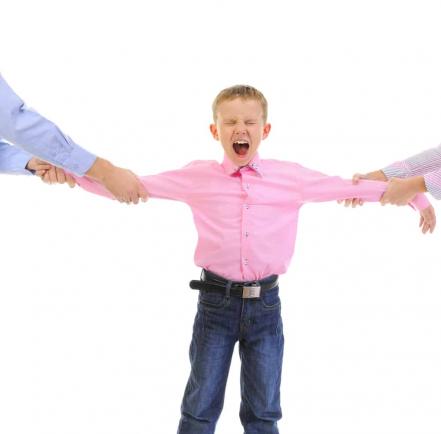
Lately, our society has had an alarming increase in divorce. This affects the family nucleus and creates several conflicts between adults and children. In each affected family, all members are harmed by this situation. It is very common that certain feelings appear such as anger, frustration, sadness, insecurity and fear. It is normal to go through these feelings because a divorce is a huge loss that causes serious changes in life. Here are some tips on how to tell your children about your divorce.
Usually, many families do not know how to handle this situation, and the couple ends up in a custody battle; dividing up assets, determining child support, etc. In a conflictive divorce, children are the most affected because they lack the necessary tools to cope with this family loss. As a result, the kids are the first victims of the accusing parent's anger.
All these things can cause certain behavioral patterns in children. For example, throwing tantrums, poor academic performance, solitude and maintaining distance from other peers at school, speech impediments and delays, regressions to previous stages, such as bedwetting and returning to transition objects such as a blanket or stuffed toy. These are some of the frequent symptoms. If you are going through a similar situation, or if you know somebody who is, here are some useful suggestions:
1. When parents go through a divorce, the children don't
Although the couple's relationship is terminated, the bond with the children is not. Each ex-spouse should get along with the other for the children's well-being. Although this may not be easy, it is not impossible.
2. Seek help from a competent professional
These situations are appropriate for people to seek psychological support in order to help the children go through this process of loss and to understand that it is possible to continue being good parents even though both are not sharing the house.
3. Choose a good lawyer
Unfortunately, there are some people who make money out of the difficulties that people go through while facing a divorce. Since money is their only interest, they suggest their clients say negative things about their ex-spouse in order to gain vengeance. Nevertheless, this will only cause resentment and harm to the little ones that are in the middle of the problem.
4. In order to be healthy, children need a family
It is important that the children keep in contact with both sides of the extended family. Grandparents, uncles, aunts, cousins and other family members make it possible for the children to grow and develop in a healthy way. Here are some ideas on how to help a child handle the changes of divorce.
5. Avoid saying negative things about the absent parent. Avoid allowing other people to do this, as well.
It is common that amidst the conflict, one of the parents begins saying negative things about the other. Besides harming the ex-spouse, this action affects the children and places them in a very uncomfortable situation. This happens because they are going through a very difficult moment by seeing their family falling apart. It is not healthy for children to be forced to choose one parent over the other. They didn't choose to be in the middle of the problem. It is also important for you to prevent other people from doing the same regardless of their anger toward your former spouse.
It is necessary to give preference to the children's well-being over the anger and frustration we feel as adults. This will help them feel loved and protected by their parents, even when they are no longer together. While there will always be differences, it is possible to reach agreements and maintain healthy relationships for the children's well-being.
Translated and adapted by Anders Peterson from the original article "Cómo manejar el divorcio sin afectar a los hijos"� by Daniela Lopez.

